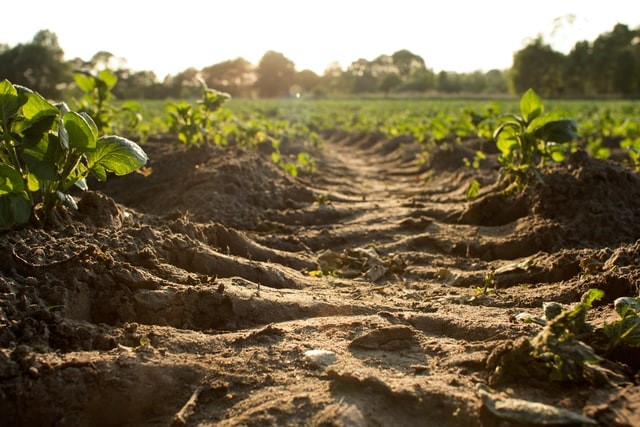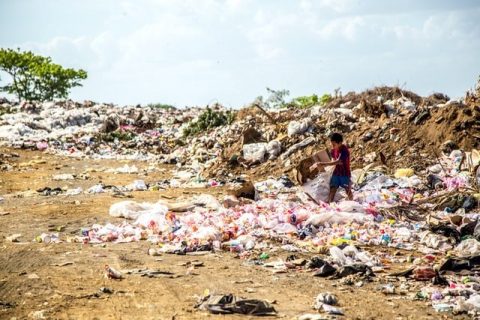As the world continuously evolves, many things are happening to our environment, specifically the soil. People tend to upgrade the environment we all live in, and it goes through many processes and not to mention the waste from these types of work. Due to human activities like industrial processes, agricultural chemicals, and improper disposal of waste, the soil has become polluted. Making it an unhealthy place for both humans and animals wherever it may be. Despite all these environmental issues, there is a way to purify or restore the soil to its clean and healthy state.
These days, there has been a rising concern regarding the polluted soil and in managing it. The fact that it may affect the health of people, especially children, is very alarming. Contaminated soil has various causes, and most of them are heavy substances that are less likely to degrade, which means that it will be around for quite a period. It will be causing issues for many generations to come, and to prevent this from happening, the only way is to use various remediation methods. However, it is also essential to know the causes first to prevent any contribution to this environmental issue.
Causes And Effects of Contaminated Soil
Chemicals
This includes hydrocarbons such as petroleum, heavy metals, lead, pesticides, asbestos, and other substances. Once these enter the soil, it upsets the natural chemical balance that leads to contamination. During this process, the said chemicals become more dangerous and will not decay for quite a long time.
Mining
Mining can sometimes result in a huge erosion because of the disturbed soil that was never touched before. Not to mention the complicated ways it can affect it, such as chemical spills and residue from various things.
Wastewater
This involves water that was contaminated with any human products or chemicals. Without proper management, this water can travel to the soil and cause pollution. Wastewater can come from both industrial and agricultural processes.
Industrial Activities
One of the leading causes of this type of issue is industrial activities, and it can be from improper waste disposal and poor management. Industrial activities involve toxic fuels containing hydrocarbons which are substances that are harmful to the environment since they contribute to the greenhouse effect and climate change.
Industrial works range from manufacturing, production, altering, formulating, repairing, renovating, and the list just goes on. All these human activities may involve various substances like chemicals and sediments that will later be improperly disposed of.
Improper Waste Disposal
Aside from the waste of industrial activities, there is also the everyday garbage from people globally. This issue can be caused by inaccessibility to proper garbage disposal or the people’s lack of knowledge. One of the main contributors of landfills is solid waste which may or may not be hazardous waste that is difficult to break down. It does not only affect the land but both water and air will be polluted as well. Additionally, it can harm not only adults and children but marine and wildlife too.
Another effect of improper waste disposal is poor quality food because the land we may grow food in is contaminated. This may lead to further health issues in the long run.
Now that we are aware of the main causes and effects of contamination, let us talk about soil remediation and its importance.
What Is Soil Remediation?
To put it simply, it is a process to decontaminate or purify the land, thus, restoring it to its healthy state. Another term for this would be soil washing which is easier to understand for most people. Moreover, soil remediation is an environmental cleaning method that benefits even air and groundwater since it makes them healthier. The remediation process has various techniques, and it may depend on what is best to use. In simple terms, these techniques are used to remove contaminants from the ground.
Why Is Soil Remediation Important?
Aside from being able to have clean land in our environment, it is also required to maintain the quality of dirt, water, and air. The process focuses on removing harmful contaminants that are a threat to both humans and the environment, making it a safer place to live in. Not only does soil remediation benefit people environmentally, but it also aids in commercial uses since polluted soil in most lands is no longer useful. Having healthy ground, on the other hand, makes those lands or spaces usable again. The overall importance of this process is to prevent any dangers that may affect life on this Earth.
Removing contaminates such as heavy metals, cyanides, pesticides, semi-volatiles, petroleum, and others prevent them from going into groundwater, surface water, agricultural crops, and many more.
Other Primary Types of Environmental Remediation
Groundwater Or Surface Water Remediation
When there is a treatment process for the soil, there is also one for groundwater. The remediation process does not only end on land parts. In fact, it is quite a long-term process that may also require further testing if the groundwater has been polluted as well. If contaminants are discovered, it may be time to consider groundwater or surface water remediation (read more). It removes the pollutants from water or converts them into harmless substances so that the area is treated, clean, and usable again.
Sediment Remediation
This type of remediation process may involve physical, biological, or chemical treatment technologies. It aids in reducing the contaminants in sediment, making it less harmful.


